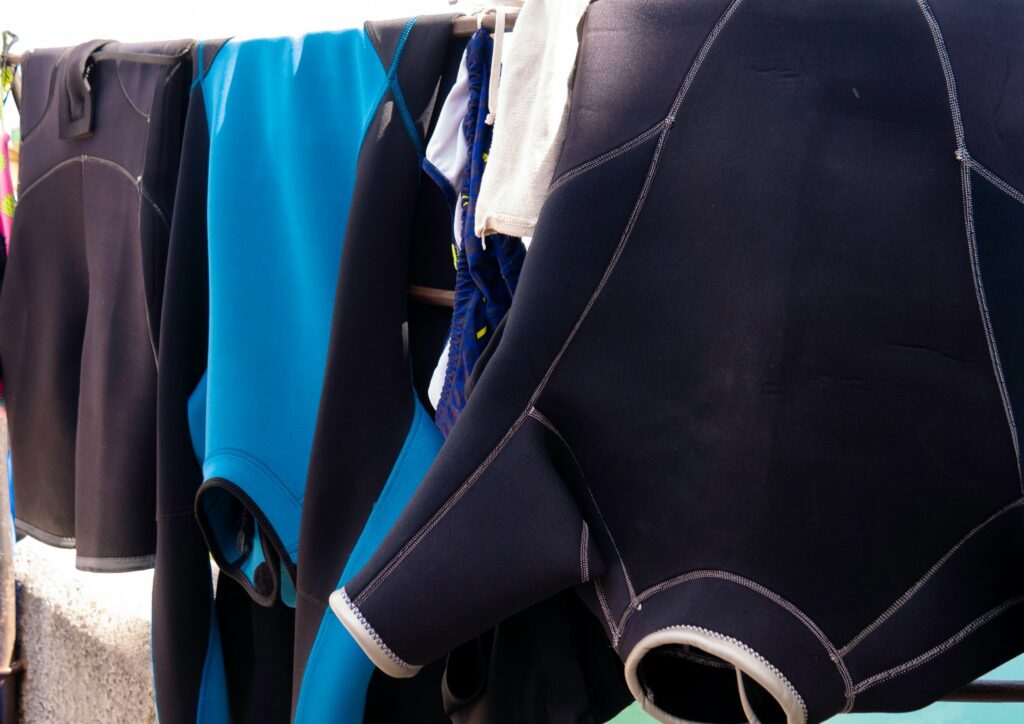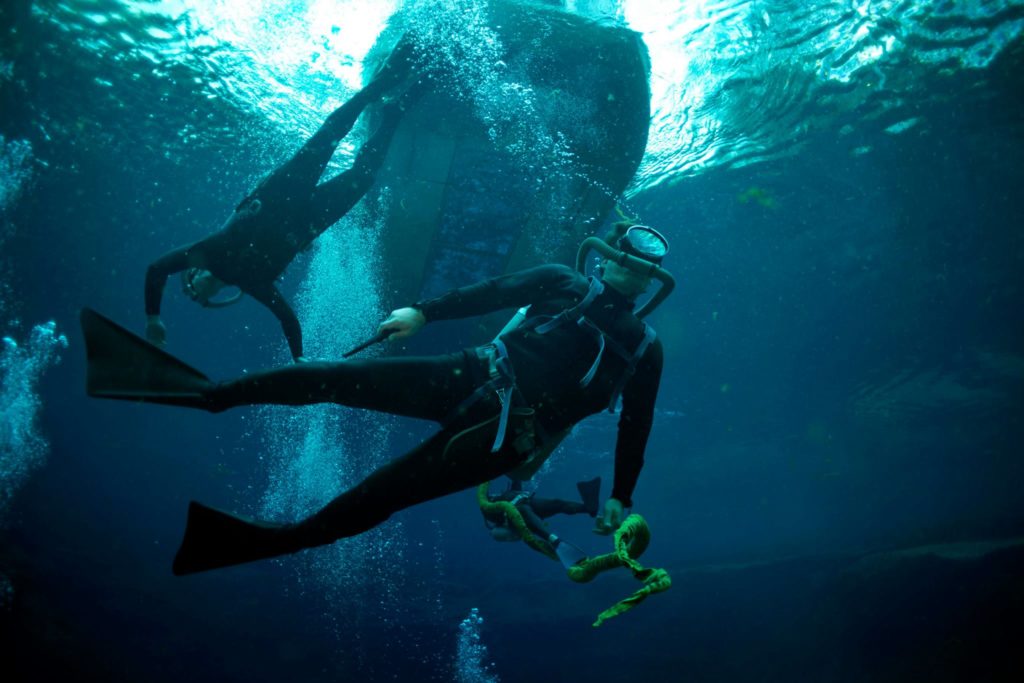Delve deeper into the abyss of diving suits where the sea water temperature grows colder as you plunge into the irresistible allure of deep sea diving. Digest the debate between the dry suit versus the wet suit; understand the essence of each and navigate neoprene like never before. Whether you’re preparing for winter diving or simply wish to expand your knowledge, this exciting exploration has got you covered.
The Wet Suit Wonder
Immersing ourselves first into the world of diving suits, we find an innovation that strikes a perfect balance between form and function. Wet suits, as their name suggests, are designed for underwater use and work on a simple yet effective principle: they allow for a miniscule volume of water to seep in, which the human body immediately warms up, creating a comforting balmy barrier against the often harsh sea temperatures.
The key element making this possible is Neoprene, the primary fabric constituent of wet suits. Not only is Neoprene an impressive thermal insulator, it also offers considerable flexibility, thus allowing for extensive range of movements. Whether it’s executing a complex surf maneuver or exploring the nooks and crannies of a coral reef, neoprene has got your back! Its versatility has elevated it to a sporting essential, making it a popular choice for a multitude of water-based activities like surfing, shallow-water diving and more.
Diving into Dry Suits
As we navigate into deeper and colder waters, diving suits, such as dry suits get the edge over their wet counterparts. With a construction designed to encapsulate the entire body – right down to the hands and feet – a dry suit guarantees the diver remains entirely dry, in stark contrast to the wet suit.
Adding another layer of comfort and warmth, they often come equipped with thermal undergarments as an added defence against the unforgiving cold. However, every pro has its con. While using dry suits, divers can find buoyancy control quite challenging if not accurately executed. Nevertheless, with a bit of training and experience, a dry suit can become an invaluable companion for expeditions to the aqua heart of our planet.

Deep Sea Diving: Making the Choice for Diving Suits
When deciding between diving suits, the wet suit and the dry suit, you’re essentially faced with two deciding factors – the depth you aim to reach and the sea water temperature. For those of us sticking to smaller depths and preferring the warmer waters, a wet suit is more than an adequate companion. The ambient warmth from the surrounding water efficiently compensates for the thin layer of internally trapped water. However, should your adventures take you into the cooler abyss of the deep sea – particularly for winter diving – a dry suit qualifies as the most apt armament. It offers an unparalleled level of warmth and overall protection that is virtually unbeatable, ensuring a safe and comfortable deep sea exploration.
Sailing Through the Sea of Diving Suits: Your Final Takeaway
Bridging the divide between wet suits and dry suits is more than understanding their construction or function. It’s about personal comfort, the environment you’ll be diving in, and the depth you wish to attain. Wet suits work well in warmer or shallower water; dry suits are preferred for colder depths. Remember, the right suit can make all the difference between a gratifying dive and an uncomfortable one. So suit up wisely, and plunge into your next adventure in Bali Diving!

I never thought of diving suits as having such a big impact on our deep sea experiences. This article has opened my eyes to the importance of choosing the right suit for the job.
Hi Fatinah, thank you for sharing your thoughts on diving suits! We’re glad to hear that our article has opened your eyes to the importance of choosing the right suit for the job. At Gill Divers, we understand the significance of having the right gear for a comfortable and enjoyable diving experience. If you have any further questions or concerns about diving suits or would like to learn more about our diving packages, please feel free to contact us at +65 6734 9373 or email us at [email protected]. We’re always here to help.
I’m more of a wet suit person myself, but it’s great to learn about the benefits of dry suits. Maybe one day I’ll try out a dry suit for a deeper dive.
Hi Kavin! Thanks for sharing your preference for wet suits, and we’re glad to hear that you’re considering trying out a dry suit for deeper dives. At Gill Divers, we believe that both types of diving suits have their unique benefits, and it’s great that you’re open to exploring new options. If you do decide to try out a dry suit, our expert instructors would be happy to guide you through the process and help you get comfortable with its unique features. Feel free to reach out to us at Tel: +65 6734 9373 or Email: [email protected] for more information.
I’ve always been fascinated by deep sea diving, and this article has given me even more respect for the divers who do it. The way they have to adapt to different conditions is amazing.
Hi Evelyn Tan, we’re glad you found our article informative and fascinating! Deep sea diving indeed requires a tremendous amount of skill, adaptability, and respect for the ocean. At Gill Divers, we take pride in providing top-notch training to our divers, ensuring they have a safe and enjoyable experience underwater. If you have any questions or would like to learn more about deep sea diving, please don’t hesitate to contact us at Tel: +65 6734 9373 or Email: [email protected].